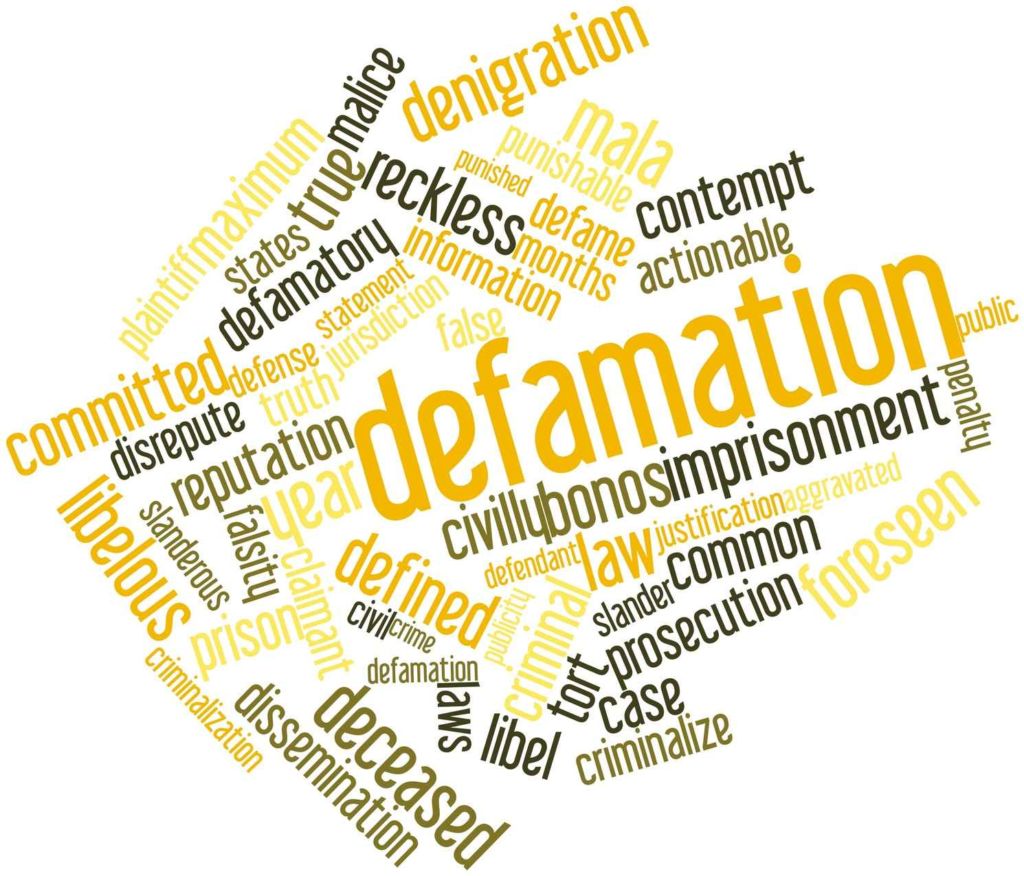 Defamation occurs when someone transmits false information to a third party and harm results. Depending on who the person being harmed is, a plaintiff in this kind of case would need to prove differing levels of culpability. An example of defamation could be an ex-employer falsely telling a potential employer that you were fired because you stole from the company. Because of that statement, you can’t find another job and lose income.
Defamation occurs when someone transmits false information to a third party and harm results. Depending on who the person being harmed is, a plaintiff in this kind of case would need to prove differing levels of culpability. An example of defamation could be an ex-employer falsely telling a potential employer that you were fired because you stole from the company. Because of that statement, you can’t find another job and lose income.
Four former employees of Allstate Insurance’s equity division in Northbrook, Illinois successfully sued the company in July using this argument. With more damages yet to be decided, the four have been awarded $27.1 million so far. The verdict is the highest defamation damages award in Illinois history. The previous high was $18.6 million.
The lawsuit, which was filed in federal court in Chicago, took six years to get to trial. The jury verdict was announced June 21. The damages include $10 million in punitive damages meant to punish Allstate for wrongdoing. Allstate may suffer additional punitive damage awards due to alleged violations of the federal Fair Credit Reporting Act (FCRA) because the company didn’t give the plaintiffs a summary of the investigation that led to their termination.
Table of Contents
TogglePlaintiffs Allege Allstate Made Up Claims About Them
 The plaintiffs were fired in December 2009, accused of timing trades to boost their incentive bonuses at the expense of the company’s investment portfolios, the Chicago Tribune reported. The company blamed “some employees” in the department in a February 2010 Securities and Exchange Commission (SEC) filing for timing trades, which Allstate claimed cost it more than $200 million over six years, while the employees obtained $1.2 million in bonuses. Allstate hired a consulting firm to investigate trading practices at the equity division in the summer of 2009. Consultants stated that the alleged trade timing may have cost the pension funds $91 million, with company portfolios adversely affected by $116 million, according to Allstate’s filings in the lawsuit.
The plaintiffs were fired in December 2009, accused of timing trades to boost their incentive bonuses at the expense of the company’s investment portfolios, the Chicago Tribune reported. The company blamed “some employees” in the department in a February 2010 Securities and Exchange Commission (SEC) filing for timing trades, which Allstate claimed cost it more than $200 million over six years, while the employees obtained $1.2 million in bonuses. Allstate hired a consulting firm to investigate trading practices at the equity division in the summer of 2009. Consultants stated that the alleged trade timing may have cost the pension funds $91 million, with company portfolios adversely affected by $116 million, according to Allstate’s filings in the lawsuit.
Though not named in the SEC filing, Daniel Rivera, Stephen Kensinger, Deborah Joy Meacock, and Rebecca Scheuneman filed the defamation lawsuit in March 2010. They alleged they were falsely accused of wrongdoing and effectively outed by the SEC filing. Their attorney asserted that even though their names didn’t appear in the filing, those in the industry knew who they were, and their careers were ruined.
The plaintiffs argued that they were following company protocols, buying low and selling high while executing trades at Allstate’s direction. Rivera was in charge of the equity division; the others were part of the growth team.
On most occasions, Rivera received directions from Allstate’s Portfolio Management Group or the pension plan manager on when to buy or sell for large trades. The plaintiffs claimed they executed the trades within the Allstate’s parameters. Equity employees could earn performance bonuses if they bought stocks on a day when prices were lower and sold them when prices were up for the markets at large. Bonuses were not based on the company’s return on the investments.
The plaintiffs’ attorney, Robert Sweeney, told the newspaper that the investigation’s findings inferred that there was wrongdoing by those in the equities department and they increased their bonuses as a result. He said there was no wrongdoing. Rather, the plaintiffs followed company policy, which was described as “arcane and imprecise.”
Allstate’s equity division was shut down in October 2009, with its management outsourced to Goldman Sachs. Two months later, the plaintiffs were terminated for violating the conflict of interest provision of the company’s code of ethics, according to the lawsuit, and they were ineligible for severance pay as a result.
Denial of Motion to Dismiss Led to Case Going to Trial
Allstate tried to have the case dismissed prior to the trial with mixed results. In September 2015, Judge William Hart ruled that one defamation claim would be dismissed, while another would remain along with the FCRA claim.
Under Illinois defamation law, the plaintiff must present facts establishing that the defendant made a false statement about the plaintiff, that the defendant made an unprivileged publication of that statement to a third party, and that this publication caused damages.
There are two types of defamation claims in Illinois: per quod and per se.
- A per quod claim requires the plaintiff to plead and prove actual damages.
- In a per se defamation legal action, the statement’s defamatory nature is so obvious and apparent on its face that an injury to the plaintiff’s reputation may be presumed. This includes statements that claim the person is unable to perform or lacks integrity when discharging his or her duties of office or employment.
For technical evidentiary reasons, the plaintiffs’ per se defamation claim was dismissed.
Under the per quod defamation theory, Allstate argued that the claim should be dismissed because its statements about plaintiffs were true. Truth is an absolute defense to a defamation claim. The plaintiffs countered that Allstate knew the investigation’s findings were not true but published them anyway. The plaintiffs pointed to internal documents and communications to the federal Department of Labor that the company was unsure of the accuracy of the estimated losses and bonus payments or knew they were wrong.
Allstate responded that it made good faith estimates. The judge found that Allstate’s estimates weren’t good enough.
The excess bonus compensation could have been $1.2 million, but it also could have been $0. Given this, a reasonable jury could find that Allstate’s public announcement of an estimated bonus enhancement figure of $1.2 million, without revealing the extent of its doubts or actually describing the assumptions underlying the estimate, was not substantially true… The same holds for the $91 million portfolio loss figure.
Allstate claimed its statements were privileged and thus could not form the basis of a defamation claim. Illinois law provides three types of privileges for communications:
- situations where some interest of the person who publishes the defamatory matter is involved,
- situations where some interest of the person to whom the matter is published or of some other third person is involved,
- and situations where a recognized public interest is concerned.
The judge wrote that even if Allstate could show one of the three privileges applied, the evidence would allow a reasonable jury to find that Allstate’s investigation was reckless, if not a total sham, so the defense wouldn’t apply.
Summing It Up
If you believe your current or former employer has defamed you, you need to show three things:
- your employer’s statement is false,
- no defense or privilege applies that would protect the statement, and
- you suffered damages.
In the area of employment, these cases often involve ex-employees who were fired and can’t find jobs because the former employer claims that the former employee was incompetent or acted unethically or illegally. Defamation may be a form of retaliation to punish an ex-employee for complaining about or reporting an employer’s illegal conduct or wrongdoing.
If you have any questions or think you may have been defamed, contact our office so we can talk about what your employer said, how the law may apply, and what your best options are for protecting your rights and interests.





